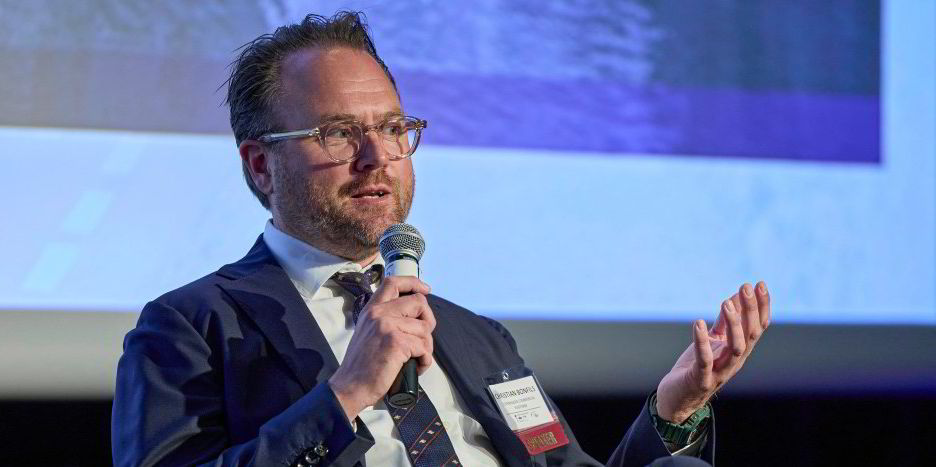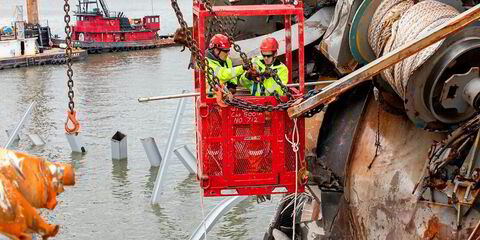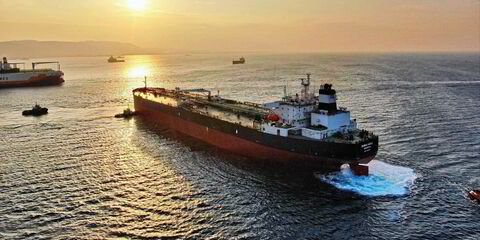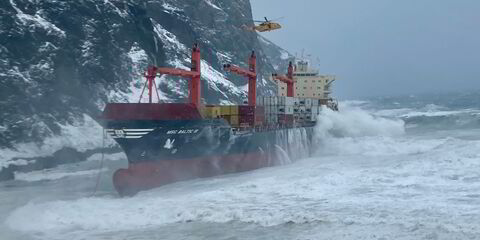Performance-linked charter contracts backed by accurate real-time vessel data are tantalisingly close to becoming a reality, and the man championing them is Christian Bonfils.
Such a contract arrangement would incentivise owners to improve vessels’ energy efficiency, when paired with charterers who are willing to pay for it — a holy grail in decarbonising shipping.
Already, a “shadow charter” is in place, shadowing an existing charter on a BW-owned bulker chartered to Cargill and commercially managed by Copenhagen Commercial Platform (CCP), which Bonfils founded.

The rate of so-called shadow hire increases as vessel performance improves. CCP and its partners are working to fine-tune the model to take into account all the factors that would affect real-life implementation.
Bonfils says decarbonisation is not about implementing the International Maritime Organization’s new greenhouse gas strategy, which calls for net zero emissions by around 2050. Instead, it is about changing how the industry does business.
“That’s why I think that the contracts need to change fundamentally in that respect,” the CPP chief executive tells TW+.
“A part of that is because we didn’t have correct data. We couldn’t change the contract. Now we have correct data. We need to build in an incentive — a collaborative incentive so both owners and charterers will benefit from this. That is exactly what we’re trying to do here and I think we have come quite far.”
For Bonfils, the green transition is about carving out a new business model that will be commercially viable in the long term but that has positive environmental, social and governance principles at heart.
“I think that our core business for the last 2½ years has been ESG-focused,” he says, reflecting on the time passed since establishing the platform in 2021.
“I think we knew that we really leaned ourselves out the window when we said that we want to connect owners and charterers towards greener shipping. But our mindset also changed — from a good idea to a mindset that we live and something that I really truly believe in.”
A self-described “entrepreneur at heart”, Bonfils has a record of “turning niches into core business”, as he puts it.
High-profile backers — including Andreas Sohmen-Pao of BW Group and Johan Wedell-Wedellsborg of Weco Group — plus a small, focused team give Bonfils the flexibility and firepower to innovate.
“Part of what we do is to be the small one chasing the big ones,” he says. “If you’re a maritime leader or industry leader, you have to look over your shoulder all the time to see who’s coming from behind and I think we’re really enjoying being in that position. We’re almost so small they can’t see us, and I think that’s why we have succeeded.”
During the days of BW Dry — out of which CCP evolved into an independent commercial management firm — the company was a “sandbox” for trying new things.
Bonfils was tasked with finding tech companies that could yield better performance data. Not only was the mission right up his street — “I like gadgets,” he says — but it also led to the partnership with ocean data firm Miros, which is able to accurately measure weather and wave data.
That partnership evolved into Miros Mocean, a data-powered vessel performance optimisation platform in which CCP is a 30% shareholder alongside BW Group and Miros. Bonfils is its chairman.
The “shadow” charter in place on the BW bulker uses Miros Mocean’s Efficient Charter Party contract structure. The rate of hire is adjusted every three months based on the previous three months’ actual performance in terms of energy efficiency.
Performance is calculated using DNV’s Vessel Technical Index (VTI), a standardised method for evaluating vessel efficiency that is verified by the class society. The better the ship’s VTI score, the higher the rate of hire.
Before CCP and BW Dry, Bonfils founded or co-founded bulker operators First Arctic, Custodia Shipping and Nordic Bulk Carriers, which pioneered commercial shipping in the Arctic’s Northern Sea Route.
He was also instrumental in setting up BW Group’s joint venture with Marubeni, BW Maru, in 2017.
Bonfils is at work on his next big project, a venture that will bring together many of the various elements of what he and his team have achieved so far. He won’t be drawn on details but says it will have a “100% green focus”.
“I think it’s wrong to look at this as ‘How does the industry have to adapt?’ This is more ‘The industry has to change’,” he says. “It’s the entire mindset and how we conduct business.”



